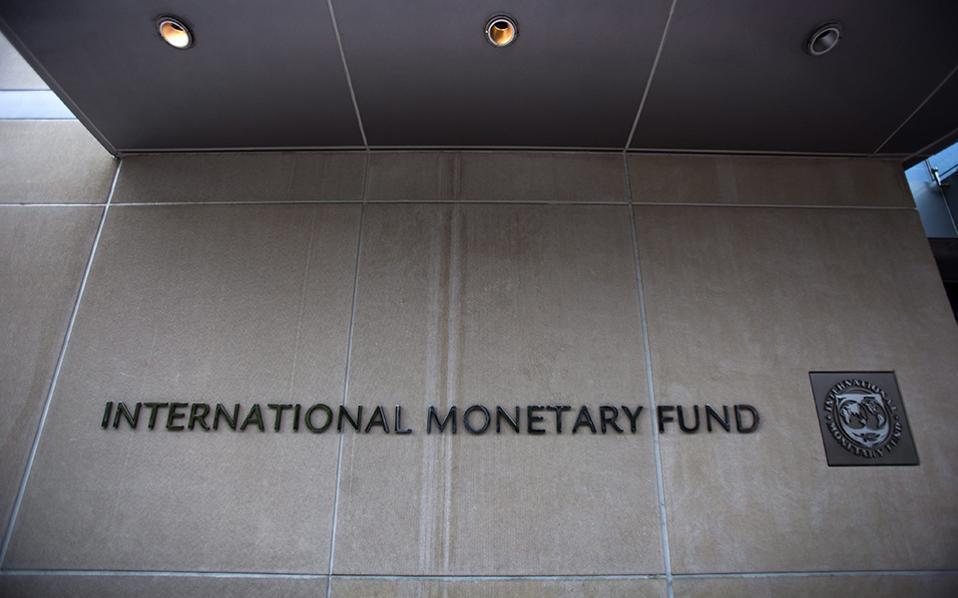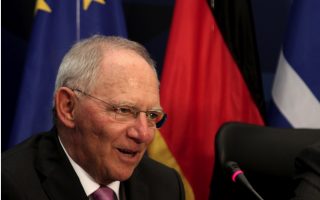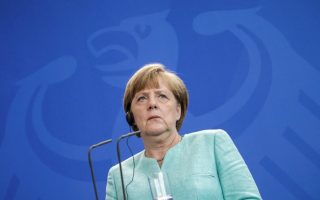Why the IMF must walk away from Greece

The depth of distrust between Greece and its creditors grows increasingly clear as both sides resume negotiations for a new bailout program.
The International Monetary Fund is demanding more European debt relief for Greece – at a minimum, a longer payback period on its European Union loans. But Germany insists that the fund lend to Greece even if Athens receives no immediate additional debt relief. More relief would not be needed for “the coming years,” German Finance Minister Wolfgang Schaeuble said.
Yet, additional IMF loans would only paper over Greece’s economic problems and postpone the reforms Athens needs to make to remain in the eurozone. Instead of more loans, the IMF should force Greece and its creditors to come up with long-term compromise solutions.
Given Greece’s poor record in meeting previous loan conditions, the Europeans seek Greek parliamentary approval of additional budget measures, imposed if Athens fails to meet its targets. This course would leave Greece still uncertain if, or how, its creditors might ease its debt burden. Such economic brinksmanship would also offer Greece little hope of real solution – which would include restoring private-sector confidence, attracting foreign investment and restarting growth.
The most likely outcome, however, is that all parties blink, some kind of agreement is reached before Greece defaults – and the cycle starts again.
This papering over of widely divergent positions reflects the eurozone’s collective failure to agree on an economic policy – which the IMF cannot do for them. Given the 500-billion euros in Europe's substantial bailout fund, the European Stability Mechanism, the more than 150 non-European members of the International Monetary Fund should tell Europe: “There will be no more IMF lending to Greece.”
Greece's crisis is a stark reflection of Europe’s own internal problems. One way the eurozone could begin to solve them would be to create the conditions to generate economic growth across the continent. That means encouraging more investment spending, particularly in the economically weaker countries, and more consumption by cutting taxes in the stronger countries.
By refusing to hand out new loans, the IMF would pressure eurozone countries to face up to the shared costs – as well as the benefits – of preserving their monetary union.
Because all eurozone countries have reaped significant benefits from membership in the union. Germany, for example, has gained from partnering with weaker economies. The value of the euro reflects the overall region – not just Germany. Berlin's exports have boomed because the euro is more depreciated than the deutschmark would be had there been no monetary union. The result is Germany has one of the world’s largest trade and current account surpluses.
The eurozone’s weaker members, such as Greece and Portugal, have also benefited. Markets have demanded a far lower interest rate on their government debt than if they had not joined the eurozone – though they did not share in the same export boom.
As for sharing costs, Europe’s European Stability Mechanism can now cover the costs of bailing out member governments in crisis. Europe has more than enough resources to manage a Greek adjustment program.
Beyond that, Europe has lagged in agreeing on how to share costs beyond monetary union. It needs, for example, to institute common bank-resolution funds and pan-European deposit insurance. Both steps are critical to prevent one country's bank crisis from spreading to others.
In addition, because Europe is not a United States of Europe, there is no effective overall commitment to support economic growth across the continent. As a result, there is also no enforcement mechanism for changing national economies to make them more competitive while remaining in the eurozone.
The burden of adjustment typically falls only on nations in economic crisis. That should not be. Strong countries like Germany should increase spending to support the union’s weaker economies, which would raise overall growth in the eurozone. But there is no mechanism to push Germany to pursue such a policy. Instead, the full burden of supporting eurozone growth falls on the European Central Bank, which is charged with meeting the eurozone inflation goal.
The International Monetary Fund has urged Europe to form a true fiscal union – with centralized revenue collection and spending decisions – to ease the strains felt across the region. One start could be a basic social safety net covering all Europe. A new central entity would collect revenues and distribute funds to member states in need. Additional steps toward fiscal union could follow.
This would help build public support for the tough economic changes that could, over time, generate stronger job creation across Europe.
The IMF could continue to provide advice and counsel. But by remaining in negotiations with Greece, its officials are in an awkward – if not untenable – position. With Berlin signaling opposition to extending further debt relief, and Athens facing major debt repayments, the IMF will feel pressured to go along with another round of lending.
All the parties are now struggling towards a compromise, somewhere between the IMF seeking immediate additional debt relief and Germany insisting debt relief be decided on later. Greece’s Parliament, meanwhile, still needs to deliver more tax hikes, on top of pension cuts approved last week.
The most likely outcome to the latest negotiations will be an economic reform package that fails to deliver either sufficient financing and debt relief or substantial structural reform. It would likely leave Greece’s economy mired in recession. Deep European vulnerabilities would remain exposed, signaling the likely high costs of sustaining Europe’s economic viability.
To avoid this, the International Monetary Fund might help far more if it let the eurozone countries face up to their responsibilities. They must finally work out their internal sharing of mutual financial support and common economic growth.
[Reuters]
* Meg Lundsager is a former US executive director of the International Monetary Fund. She is now a public policy fellow at the Woodrow Wilson International Center for Scholars.





